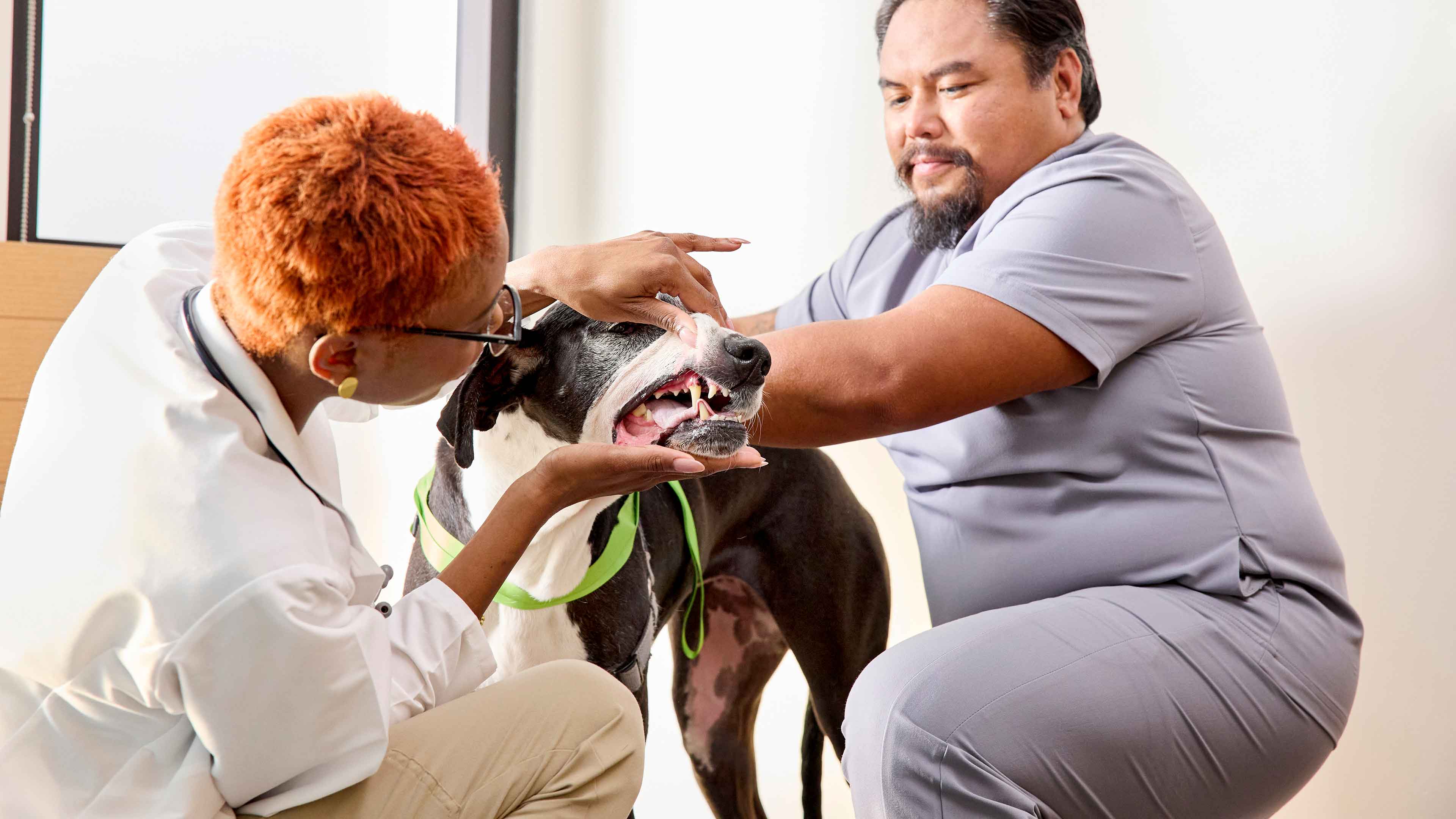dog allergy symptoms
You’ve heard about people being allergic to pets. But did you know that pets can have allergies too? Now, as far as we know, most pets aren’t allergic to people (whew!). But if your furry friend is showing signs of a skin issue — like itchy skin or ears, swelling, or inflammation of the skin, eyes, or ears — they might be allergic to something.
None of us like pets to feel uncomfortable. Luckily, your Banfield veterinary team can help. Here’s a quick introduction to help you get started.
Three most common allergies, and how to handle them
- Flea allergies: Any pet that has fleas will be irritated, annoyed, and uncomfortable. But if your pet is unlucky enough to be allergic to proteins in flea saliva, the symptoms can be even worse. Over the past 10+ years, Banfield veterinary teams have seen an increase in flea allergy cases, especially in cats. Even indoor-only pets can get flea allergy dermatitis, and fleas are around all year — even in the coldest months of winter. The best way to reduce the problem is to control it with parasite prevention, which can be administered via pill, topical treatment, or veterinarian-prescribed collar.
- Food allergies: Many people blame their pet’s skin issue on an allergic reaction to food, but food allergies are not as common in pets as you might think. That’s good! The challenging part is determining whether or not your pet is in fact allergic to a certain food. It can take allergy testing and trial diets, which can sometimes take a long time. Your veterinary team can help diagnose food allergies and advise you on complete diets that keep your pet healthy and happy without irritating their skin.
- Environmental allergies: Pets react to many of the same common allergens as people, both seasonally and year-round. We’re talking about dust mites and storage mites, dander, fabrics, feathers, indoor plants, medications, and cleaning solutions. Common springtime allergens include pollen from trees, grasses and weeds, and mold spores. Along with skin symptoms, allergies might also cause a runny nose, or even chronic ear infections. It can be complicated to identify environmental allergies, but your veterinary team can help you determine triggers and manage allergies all year round in your pet.
Special credit: Allergy quiz!
We know that most people don’t really like quizzes, so we’ve put the answers to this pet allergies quiz right under each question. (This would have made high school a lot easier, right?)
Is scratching normal for certain breeds?
Answer: Occasional scratching is natural, but not necessarily “normal.” And any scratching that is accompanied by red inflamed skin or hair loss is definitely not normal. Some breeds might be predisposed to skin infections or other conditions that lead to scratching. Your veterinary team can help you confirm what is normal for your pet vs. what might need treatment.
Is there a one-size-fits-all treatment for your pet’s allergies?
Answer: Unfortunately, no — and getting allergies under control may prove more difficult for certain pets. If your BFF has allergies, connect with your veterinary team and start a pet-specific treatment plan. Medical treatments include allergy medications, allergy shots, shampoo, coat conditioners, and food trials. In some cases, a referral to a board-certified veterinary dermatologist may be helpful.
Is it true that antibiotics are a quick fix for itchy pets?
Answer: No. Not all pet itching is caused by a bacterial infection, so antibiotics would be ineffective. Your veterinary team will perform diagnostic tests that could save you from administering a medication your pet may not need. In some situations, like fungal infections, anti-fungal medication can actually make itching worse. Your local Banfield veterinary team can help treat flare-ups early to reduce the severity of chewing, scratching, and other trauma than might require antibiotics.
 Mites and mange
Mites and mange Podcast - Not Just Fluff
Podcast - Not Just Fluff











